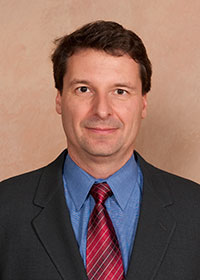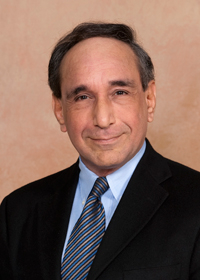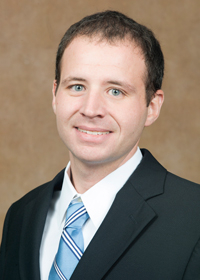4 Carlson School Faculty Receive Grand Challenges Research Grants
Wednesday, October 5, 2016
Four Carlson School faculty members are part of campus-wide teams that recently received the first Grand Challenges Research grants from the University of Minnesota. The two-year grants will seed ambitious interdisciplinary collaborations addressing critical challenges facing Minnesota and the world, in alignment with Driving Tomorrow, the University campus strategic plan.
Professor Myles Shaver, the Pond Family Chair in the Teaching and Advancement of Free Enterprise Principles, is a co-PI of “Shared Leadership Lab: Analyzing Success Factors to Address Complex Societal Challenges.” This project was awarded a $300,000 grant that includes a $50,000 international enhancement award.
“We plan on creating a Shared Leadership Lab to conduct and stimulate research into the success factors of shared leadership initiatives that blend public imperatives and private sector incentives,” he says. “The Minneapolis-St. Paul region is known for many such initiatives and our goal is to systematically compile when these initiatives are most successful.”
Professor and Curtis L. Carlson Chair in Strategic Management Aks Zaheer and Assistant Professor Russell Funk are co-PIs of “Are Networks Key to Solving America’s Healthcare Crisis?” Zaheer and Funk want to determine how accountable care organizations (ACOs) overcome clinical and administrative complexity in the process of delivering lower cost and higher quality care. They hypothesize that when the network of relationships among ACO member organizations is stronger and better integrated, cost and quality outcomes will be superior. This project received a $50,000 Grand Challenges grant.
Mosaic Company Professor of Corporate Responsibility K.K. Sinha received the largest grant possible, $500,000, for "Minnesota Precision Medicine Collaborative: Transforming Health and Advancing Equity," of which he is a co-PI. "From the standpoint of our school, the success of the proposal highlights the acknowledgment of the centrality of supply and operations management, as a discipline, in the U of M's commitment and concerted effort to tackle the Grand Challenges," he said.
The Minnesota Precision Medicine Collaborative (MPMC) is a transformative initiative to use 21st century technologies, including genomics, informatics, bioengineering, analysis of environmental exposures, and behavioral sciences, to tailor health care to the challenges facing individuals and their communities. This ambitious approach will fundamentally alter the understanding of health, disease prevention, and treatment. Core to this project is partnering across the state of Minnesota with citizens, patients, and healthcare providers to understand and effectively address major health problems. MPMC will create a living laboratory, starting with demonstration projects on Alzheimer's disease, lung cancer, and depression. This focus will allow the MPMC to leverage U of M research strengths across many disciplines and to engage with partners in the health industry and Minnesota's underserved communities.
In all, $3.6 million in support has been awarded to 29 teams of faculty from across the Twin Cities campus. Projects were selected through a multi-tiered, faculty-based review process, with the expectation that the funded projects would capitalize on existing University research strengths, leveraging them to break new ground in addressing the University’s five interrelated Grand Challenges areas of special focus.
The Grand Challenges Research grants are intended to jumpstart new research collaborations, enabling faculty to collaborate more broadly and deeply and to compete successfully for additional resources. This advances University strategic plan recommendations to seed and support such collaborations through a bottom-up, inclusive process that builds on existing faculty strengths and leadership.



